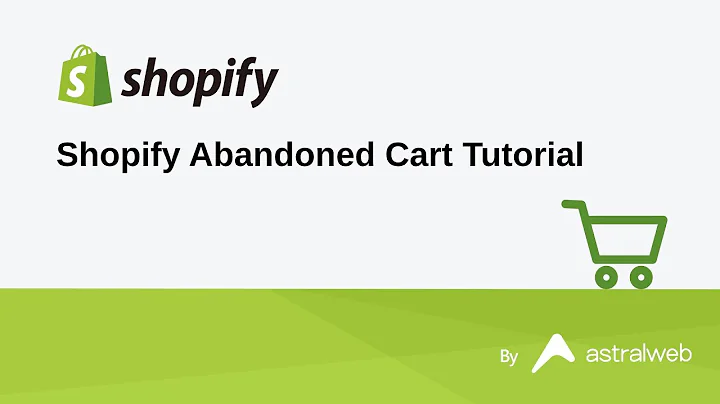Shopify vs WooCommerce: Which is the Best E-commerce Platform?
Table of Contents
- Introduction
- Performance and Ease of Use
- Scalability
- Themes and Designs
- Customer Support
- Drop Shipping Services
- Pricing
- Payment Options
- Conclusion
Shopify vs WooCommerce: A Comprehensive Comparison
In the world of e-commerce, choosing the right platform for your online store is crucial. With the rapid evolution of e-commerce platforms, the decision-making process can seem overwhelming. However, with the right knowledge and research, you can find the perfect platform for your needs. In this article, we will compare two popular e-commerce platforms, Shopify and WooCommerce, to help you make an informed decision.
Performance and Ease of Use
Shopify
Shopify offers a user-friendly interface and an intuitive setup process. As a hosted platform, Shopify takes care of technical aspects such as security and hosting, allowing you to focus on setting up your store, adding products, and customizing the design. It is particularly suitable for those without much coding knowledge.
WooCommerce
WooCommerce, on the other hand, is a WordPress plugin that transforms your website into an online store. It provides more control and flexibility over customization options but comes with a learning curve. With WooCommerce, you will need to handle security, hosting, and updates by yourself or through a trusted hosting provider. This makes it less suitable for beginners in the field.
Scalability
Shopify
Shopify can handle stores of all sizes, from small businesses to large enterprise-level operations. It offers various features, such as inventory management, secure payment gateways, and marketing tools. Additionally, the Shopify App Store provides access to a wide range of extensions and plugins to enhance your store's functionality. Shopify takes care of all the technical aspects of scaling your business, making it a seamless experience.
WooCommerce
WooCommerce's scalability depends on the hosting provider you choose. As an open-source platform, it offers endless customization options and flexibility. The scalability of your WooCommerce store will depend on how powerful your hosting provider is. However, keep in mind that hosting costs may increase, making WooCommerce a less budget-friendly option compared to Shopify.
Themes and Designs
Shopify
Shopify offers 70 professional design themes that are easily customizable to match your brand's aesthetic. These themes are optimized for mobile devices and provide a seamless shopping experience for your customers.
WooCommerce
WooCommerce offers thousands of WordPress themes, including both premium and free options. Like Shopify, these themes are customizable to suit your requirements. However, not all themes are designed with e-commerce in mind, so careful consideration is required to find the most suitable option for your business.
Customer Support
Shopify
Shopify offers 24/7 customer support via email, live chat, and phone for all their plans. Their responsive and helpful customer support agents are available at any time to assist you with any issues you may encounter.
WooCommerce
Support options for WooCommerce may vary based on your hosting provider or the plugin and theme you are using. However, there is an active WooCommerce community where you can find forums, documentation, and tutorials to help troubleshoot any issues.
When it comes to customer support, Shopify takes the lead with its comprehensive and readily available support options.
Drop Shipping Services
Shopify
Shopify offers integration with multiple popular vendors who can deliver your goods. The costs involved in using these vendors may vary, including monthly membership fees or one-off costs. The Shopify App Store also provides a wide range of plugins to choose from.
WooCommerce
WooCommerce allows you to choose from hundreds of options for drop shipping services. You can select the one that best suits your needs. However, due to the self-hosted nature of WooCommerce, you will need to handle integration and costs associated with these services independently.
Pricing
Shopify
Shopify offers a three-day trial period, allowing you to test their service before committing to a plan. Their plans range from the basic plan, which starts as low as $19 per month, to premium plans that go up to $299 per month. Shopify plans include security, hosting, and support.
WooCommerce
WooCommerce itself is a free plugin but requires additional costs for domain registration, hosting, premium themes, and extensions. The overall cost will depend on how you mix and match these features to achieve your desired outcome. Hosting costs can range from $5 to $30 per month, while a domain name registration may cost around $15 annually. Keep in mind that SSL certificates may add an average cost of $0 to $100 per year.
Payment Options
Shopify
Shopify offers a variety of payment options, including their own payment solution called Shopify Payments, powered by Stripe. Additionally, you can use third-party payment options. It's important to note that Shopify charges a 2% transaction fee, which can vary depending on the plan. Advanced Shopify plan users, however, pay a reduced fee of 0.5% instead of 2%.
WooCommerce
WooCommerce offers Stripe Payments and PayPal as default options. WooCommerce Payments, powered by Stripe, is also available. In addition, there are various payment gateways such as Amazon Pay and Alipay to choose from. As a self-hosted platform, you only have to pay transaction fees imposed by banks or payment gateways.
Conclusion
Choosing between Shopify and WooCommerce depends on your specific needs, level of technical experience, and budget. Shopify is recommended for its user-friendly interface, scalability, customer support, and easy integration with drop shipping services. On the other hand, WooCommerce offers more customization options and flexibility but requires advanced technical knowledge and self-management of security and hosting.
Whichever platform you choose, both Shopify and WooCommerce provide powerful tools to build and grow your online store. Evaluate your requirements carefully and make an informed decision to ensure the success of your e-commerce venture.
Highlights
- Shopify and WooCommerce are popular e-commerce platforms for setting up online stores.
- Shopify offers a user-friendly interface and takes care of technical aspects, making it easy to set up and launch a store.
- WooCommerce provides more control and flexibility but requires technical expertise for handling security, hosting, and updates.
- Shopify is recommended for scalability, as it can handle stores of all sizes, while WooCommerce's scalability depends on the hosting provider.
- Both platforms offer customizable themes to match your brand's aesthetic.
- Shopify provides 24/7 customer support, while WooCommerce's support depends on the hosting provider or plugin/theme used.
- Shopify offers integration with popular drop shipping services, while WooCommerce allows you to choose from a wide range of options.
- Pricing varies between Shopify and WooCommerce, with Shopify offering monthly plans and WooCommerce requiring additional costs for hosting, themes, and extensions.
- Both platforms offer payment options, with Shopify charging transaction fees and WooCommerce providing flexibility in choosing payment gateways.
- When choosing between Shopify and WooCommerce, consider your needs, technical expertise, and budget to make an informed decision for your online store.
FAQs
Q: Is Shopify better than WooCommerce for beginners?
A: Yes, Shopify is generally considered more beginner-friendly as it takes care of technical aspects and provides an intuitive setup process. WooCommerce requires more technical knowledge and self-management of security and hosting.
Q: Can I customize the design of my online store on Shopify and WooCommerce?
A: Yes, both platforms offer customizable themes and designs to match your brand's aesthetic. Shopify provides 70 professional design themes, while WooCommerce offers thousands of themes to choose from.
Q: Which platform offers better scalability for a growing business?
A: Shopify is known for its scalability and can handle stores of all sizes, from small businesses to large enterprise-level operations. WooCommerce's scalability depends on the hosting provider, and more powerful hosting can increase costs.
Q: Does WooCommerce offer customer support like Shopify?
A: WooCommerce's customer support options vary depending on your hosting provider or the plugin and theme you are using. However, there is an active WooCommerce community where you can find forums, documentation, and tutorials for troubleshooting.
Q: Are there any transaction fees involved when using Shopify or WooCommerce?
A: Shopify charges transaction fees on top of the regular subscription fees, while WooCommerce only requires transaction fees imposed by banks or payment gateways.


















